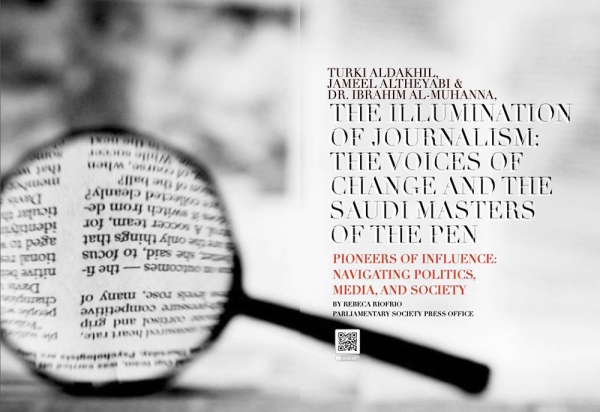
In recent years, the “masters of the universe,” as Davos-goers have become pejoratively known, have been on the back foot
The oil exporting economies of the Gulf have a big presence in Davos this year and it is easy to see why
LONDON: Davos is about framing narratives. If you run a company or country and you want to look forward to the big sweep of history before it happens, this is the place to start.
Recent meetings of the World Economic Forum (WEF) in the Swiss alpine town have been preoccupied with the notion that the world is undergoing what Weffers have called the fourth industrial revolution — describing a period of accelerated technological change. In one way or another, it’s all been about disruption, that term beloved of management consultants and the golden fleece of the modern business world.
The fourth industrial revolution narrative tells us we should focus on the positives of change and that if we are “nimble” and “agile” we’ll be absolutely fine — like a child laborer skipping happily through the steaming pistons of a Victorian linen mill.
But this year’s event is looking beyond the “Uberization” of everything to disruption of a far more existential kind.
It seems, clever as we are, we are doing quite a good job of disrupting ourselves. To quote the Nature Risk Rising report released at Davos this week, the world’s 7.6 billion people represent only 0.01 percent of all living things by weight. Yet humans have already caused the loss of 83 percent of all wild mammals and half of all plants.
With bush fires blazing across Australia, the polar ice caps melting, and the Maldives struggling to avoid submerging altogether, Davos 2020 is big on the environment.
Environmental and business interests, so often polar opposites, are increasingly in alignment, as the cost of climate change becomes more quantifiable. From insurers to ratings agencies, the earth’s ledger of loss is now laid bare.
So don’t expect to see many grand carbon-intensive entrances via private jet or helicopter from world leaders this week, except from, well, you know who.
In recent years, the “masters of the universe,” as Davos-goers have become pejoratively known, have been on the back foot.
That’s largely because us serfs of the universe are getting ticked off with the growing inequalities created by globalization, technology and all the other stuff that we were told were forces for good - until we were made redundant and replaced by a smug little algorithm and our final salary pension scheme turned into a zero hours contract.
So back to narratives.
The oil exporting economies of the Gulf have a big presence in Davos this year and it is easy to see why.
Gulf states have already felt the impact of the disruption of their chief commodity export, and are rapidly re-calibrating their economies to fit into a new world where US shale oil is in abundant supply and where the combustion engine will become increasingly rare.
The petrochemicals sector is now also starting to feel the impact of disruption — especially so when the world’s largest polyethylene importer decides to ban single use plastic bags from its major cities — as China did this week on the eve of Davos — and where it is also sending a huge contingent.
Big oil has never faced such environmental scrutiny as it does now, which sets the scene for what is shaping up to be one of the most interesting debates around the world’s carbon economy.
It is no accident that the biggest consumers and producers of energy are out in such force at Davos this week.
Greta Thunberg, the teenage Swedish environmental activist, is the poster child of the gathering and arrives with a message for world leaders to abandon the fossil fuel economy.
In the prevailing narrative, the carbon economy is unquestionably the villain of the piece: Lord Voldemort, Freddy Krueger and Hannibal Lecter all rolled in to one.
But for both the big carbon-producing and consuming-countries, it is a much more complicated character, more misunderstood than mean.
For them the question is not whether fossil fuels are good or bad but how you can make them better within an energy mix that still ultimately requires them.
Carbon sequestration, that is the long term storage of CO2, will be among the ideas that are bounced around in the halls of Davos this week. The narratives that are produced here are simply stories — but they are very important stories that ultimately shape policy and change industries. In the case of climate change, they can change everything.












